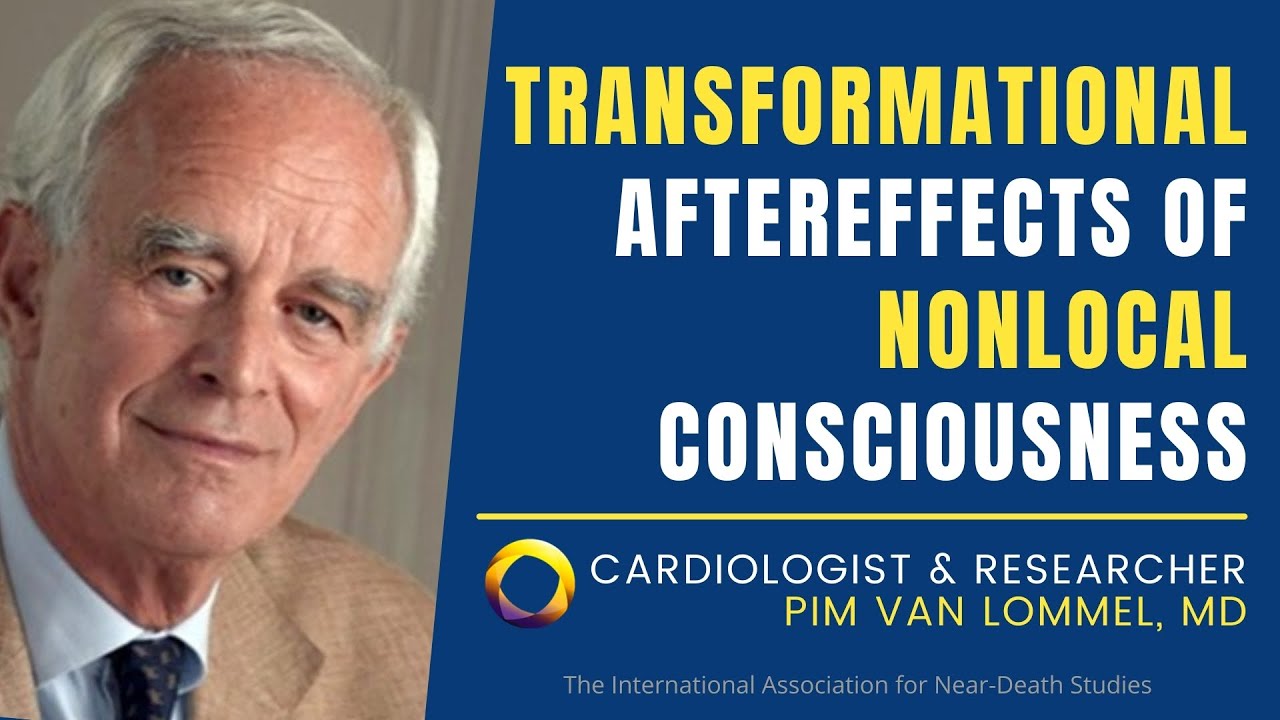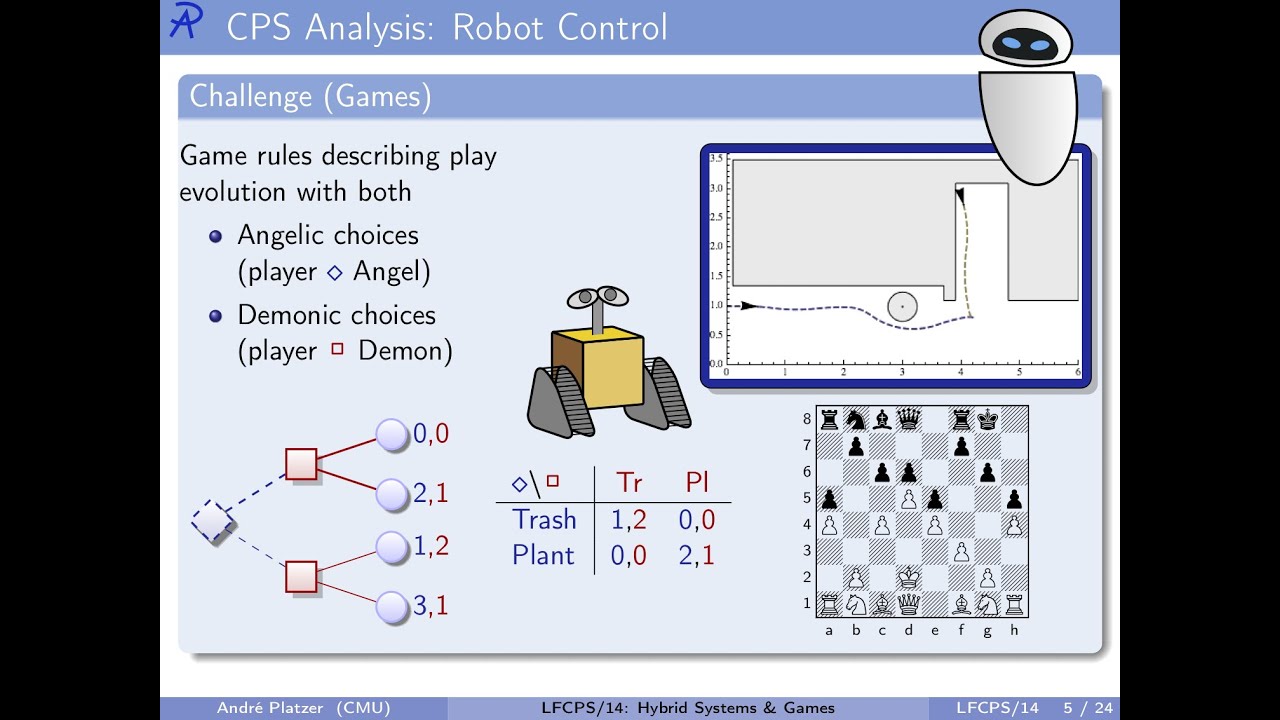IANDSvideos
Cardiologist and NDE Dutch researcher Dr. Pim van Lommel discuss nonlocal consciousness and its transformational aftereffects.
According to our current medical concepts, it is not possible to experience consciousness during a cardiac arrest, when circulation and breathing have ceased. But during the period of unconsciousness due to a life-threatening crisis like cardiac arrest patients may report the paradoxical occurrence of enhanced consciousness experienced in a dimension without our conventional concept of time and space, with cognitive functions, with emotions, with self-identity, with memories from early childhood and sometimes with (non-sensory) perception out and above their lifeless body.
Since the publication of these prospective studies on NDE in survivors of cardiac arrest, with strikingly similar results and conclusions, the phenomenon of the NDE can no longer be scientifically ignored. It is an authentic experience which cannot be simply reduced to imagination, fear of death, hallucination, psychosis, the use of drugs, or oxygen deficiency, and people appear to be permanently changed by an NDE during a cardiac arrest of only some minutes duration.
According to these studies, the current materialistic view of the relationship between the brain and consciousness held by most physicians, philosophers and psychologists is too restricted for a proper understanding of this phenomenon. Source: (2018 IANDS Conference)
About Pim van Lommel
For more than twenty years cardiologist Pim van Lommel has studied near-death experiences (NDEs) in patients who survived a cardiac arrest. In 2001, he and his fellow researchers published a study on Near Death Experiences in the renowned medical journal The Lancet. He, then, wrote the Dutch bestseller “Endless Consciousness”; over 100.000 copies were sold in the first year. Pim van Lommel is a Dutch author and researcher in the field of near-death studies. He studied medicine at Utrecht University, specializing in cardiology. He worked as a cardiologist at the Rijnstate Hospital, Arnhem, for 26 years. https://pimvanlommel.nl/en/
What is a Near-Death Experience? (NDE)
A near-death experience, or NDE, is a profound psychological event that may occur to a person close to death or who is not near death but in a situation of physical or emotional crisis. Being in a life-threatening situation does not, by itself, constitute a near-death experience. It is the pattern of perceptions, creating a recognizable overall event, that has been called “near-death experience.”
Across thousands of years and in cultures around the world, people have described powerful experiences that follow this general pattern with its common features. At its broadest, the experiences involve perceptions of movement through space, of light and darkness, a landscape, presences, intense emotion, and a conviction of having a new understanding of the nature of the universe.
An NDE may begin with an out-of-body experience—a very clear perception of being somehow separate from one’s physical body, possibly even hovering nearby and watching events going on around the body. An NDE typically includes a sense of moving, often at great speed and usually through a dark space, into a fantastic landscape and encountering beings that may be perceived as sacred figures, deceased family members or friends, or unknown entities. A pinpoint of indescribable light may grow to surround the person in brilliant but not painful radiance; unlike physical light, it is not merely visual but is sensed as being an all-loving presence that many people define as the Supreme Being of their religious faith.
A near-death experience may include few or several of the common features. Many accounts of experiences include only one or two of the common features, but those were so powerful they created permanent changes in people’s lives.
The emotions of an NDE are intense and most commonly include peace, love and bliss, although a substantial minority are marked by terror, anxiety, or despair. Most people come away from the experience with an unshakable belief that they have learned something of immeasurable importance about the purpose of life. Overall, the entire experience is ineffable—that is, it is beyond describing; even art and metaphor cannot capture it. The effects of an NDE are often life-changing, and its details will typically be remembered clearly for decades.
– Join the International Association for Near-Death Studies (IANDS): https://iands.org
– IANDS online events, groups and more: https://isgo.iands.org
– The next 2021 IANDS Conference is Sept 2-5, 2021
– Please subscribe to this channel to receive new video notification. Thank you!
Source




My indoor cat died today while sleeping in my arms…she was 16 years old and was red headed and fit the stereotype of red heads exactly…I'm not afraid of my own death and have seen that death is just a word and not real but seeing this today makes me question the point of life…how to deal with others around you dying? Any advice? I feel like I can't move
I think it is a little bit confusing how to best define an NDE.
If someone is engaged in meditation, goes out of body, goes through a mystical experience, experiences audience with luminous profoundly compassionate, loving and enlightened beings, has a host of experiences out side of time and through eternities, experiences multiple incarnations, along with a whole host of ineffable complexities, including being offered to not come back to their body (physical death) is this to be categorized as an NDE?
I feel like we need a broader term that NDE's can be categorized into. At the same time so much has gone into the establishing of the NDE premise already. I see great value in the establishing of the NDE premise. The NDE conversation and exploration is far more critical than carefully defining and categorizing experience's.
One NDE'r was clinically dead, and reported being locally out of body, in the room looking down on his body, and then returning to his body. This peeks interest in considering whether or not there is consciousness independent of the body. Other people have more elaborate OBE's that are not associated with any medical issues or physical trauma, but can be interpreted in more varying ways.
Some NDE'rs do not report being locally out of body, or going through a tunnel, but they are clinically dead, "while" having an experience that seems to be intrinsically and characteristically out of body. An OBE has the minimal potential to experience a disconnection with the physical body and the I experiencer. After this minimal experience there are many levels of potential experience. If we categorize these levels of potential experience, we can then make a reasonable inference as to roughly around what level an NDE was taking place around, even if one does not report having experienced a conventional transition to this level, like recalling leaving their body first, and or then traveling through a tunnel… Is it unfair or too assumptive to think these experiences are are all firstly out of body and then being experienced at some classifiable level?
I had a particular OBE where I was simultaneously experiencing the outer and inner universe as one correlated whole. The experience graduated a number of times beyond the experience of a conscious living, conscious breathing, conscious physical universe. At some point the graduation's expanded way outside of time and space references. Instead of time being a medium that I was within, that could hold still, time had been reduced to that of an object that could be observed attached to one space or another, like furniture in a field, but mostly was not present…
It is my summation that all NDE's are simply OBE's spurred by clinical death or other life threatening events/conditions. At the same time most all reported "OBE's" are relatively trivial, compared with all reported "NDE's".
Typical NDE's are of particular interest due to surrounding conditions.
A minority of OBE's graduate a level of qualitative interest, and then seem to adopt the catagory of NDE.
In many, if not all, religious and spiritual philosophies it is encouraged to become "dead to the world", to let go of "your life", etc, etc, etc.
During a typical NDE one's connection with this world, is made thin or cut in one way or another.
During an OBE a spiritually transcendent attitude can graduate the experience to what is being categorized as an NDE in this video.
The typical NDE is valuable to the limitations of scientific rationale. The quality of the ineffable verbiage of all these experiences is what drives the pro NDE premise. The practice and observation of all these qualities amoung us is priceless on every level.
Listen to IANDvideos has helped me grow into a more empathic and tolerant human being. Thank you for what you do.
Also at least consider that this tunnel and light could in fact be a soul trap with forced reincarnation. Since everyone is always cajoled into coming back into their meat bag, it's one thing to consider. I think we are trapped here in this hellscape, but pray I am wrong.
Is consciousness is quantum mechanical?
Is mind different that consciousness?
Mind is collection of thought and imagination emotions?
Consciousness is just observes mind?
Thank you 🙏 d"r van lommel for the encouraging speech
100% truth, thanks so much for sharing this, Cheers
This is an excellent presentation, maybe even definitive, both because of the extensive research van Lommel brings to it, and because of how many important facets of the subject are addressed.
Having said that, I want to address a handful of related points that I’ve rarely (if ever) seen covered in discussions on NDEs, but that are meaningful to me and based on my own insight and experience:
30:32 "…for now I know that mind and body are separate, and that there is life after death. And about all people who experienced an NDE lose their fear of death."
Not everyone who’s encountered death loses their fear of death. More to the point, some actually become more afraid of death, precisely because it’s not an absolute end. Two possible causes of this are, 1) the NDE was negative and terrifying (cf. the work of NDE researcher Nancy Evans Bush); or 2) the individual, for whatever reason, simply has a deeply rooted preference for non-being, regardless of whether the anticipated alternatives are heavenly or hellish. Of course, I recognize that very few people will be able to wrap their minds around the second point, even in the abstract. But trust me when I say that this orientation is a reality for some.
1:06:30 "However, we should acknowledge that research of NDEs cannot give us the irrefutable scientific proof for the conclusion that the death of the body is not the end of our consciousness, because people with an NDE did not quite die."
This is important to bear in mind, and is the main reason (though not the only one†) why I think that NDEs are far stronger evidence for consciousness not depending on the brain, than they are for consciousness surviving death (at least in personal form. More about that below).
† Another consideration in support of not over-interpreting NDE data as evidence of consciousness after death: if you go the NDERF site and read as many of the thousands of user-submitted NDE accounts as you can handle, you will find that there are far more idiosyncratic elements than universal elements. Indeed, even in the research cited by van Lommel at 14:45 in this video, those classic, “universal” NDE features, such as positive emotions (56%), moving through a tunnel (31%), communication with “light” (23%), meeting with deceased relatives (32%), and life review (13%) occur in barely more than — and often far less than — half of NDE accounts.
The point I’m making isn’t to diminish any of the accounts, but to be wary of confirmation bias in assuming that all or most NDE accounts share commonalities and universal features, which in turn reinforces the belief that you can know for sure exactly what’s in store when you die. A more neutral perusal of the literature shows that this simply isn’t the case. But again, said literature is much stronger as evidence that consciousness isn’t produced by the brain. That’s what I think should be the takeaway here.
1:07:48 “There is no beginning, nor will there ever be an end to our consciousness. The NDE seems to be a personal rediscovery of wisdom and insight that is ages and ages old, and has been well known in many cultures and at all times, but nowadays seems to be forgotten."
Actually, his comment about "wisdom and insight that is ages old" pertains more to mystical realization (variously known as enlightenment, awakening, liberation, etc.) than to NDEs. The main difference between the two is that NDErs almost always retain some sense of individuality (even if very subtle), and continuity with their biographical identity, no matter how profound and overwhelming the experience overall; whereas mystical realization is largely or entirely impersonal, and even more crucially, completely transcends the subject-object mode of being (i.e., there isn’t a “spiritual being” that’s “becoming one” with a source that is still somehow other than itself. Rather, it’s discovered that there is only ever source playing at being separate things and people that are all "other").
In short, while I have rock bottom (mystical) certainty that the source and substance of this (or any conceivable) reality is eternal and inextinguishable, that doesn’t necessarily mean that one’s biographical narrative is eternal and inextinguishable, nor that one’s present biographical narrative is but part of a vast metanarrative — à la reincarnation. Then again, it might be. The point here, as in the previous examples above, is to focus on what’s most essential and certain: that consciousness isn't produced by matter.
I personally believe there is more to consciousness than brain, but I am baffled by two aspects of NDEs and Consciousness which need answering and resolving…
1) Why do only a small percentage of people have these experiences (surely such a profound experience should be remembered by every single person who has cardiac arrest?)
And
2) Why does consciousness "disappear" when someone is put under Anaesthesia – because if consciousness is NOT produced by brain – then why would we lose consciousness by the administration of a substance into our blood stream?
"Trying to find consciousness in the brain is like trying to find music in the radio"
Why was the other video turned to private ??
Sean Carol and Susan Blackmore are people who doesn't believe that wireless technologies Exists
I gather that at least 20% of NDEs are perceived as negative (many go unreported), even terrifying. This doesn't seem to get talked about in USA much (seems a cultural attitude to be seen as 'positive'), and also here re aftereffects of neg experience.? And not sure why IANDS doesn't get speakers on the incredible amount of eastern knowledge, the west is still at kindergarten level on this (although often plagiarizes from the east without credit and falsely claims it has discovered this or that).
wow cool
I Love This Channel! It’s So Enlightening And Transforming!!!♥️
It is amazing to me how many people believe in an invisible God but not in scientifically supported evidence of near death experiences. Once again, I will be posting on Facebook this incredible presentation by Pim Van Lommel hosted by IANDS. I do this as I believe these accounts may help mankind achieve a necessary paradigm shift — one in which the pursuit of power and money (materialism) are not the means to finding meaning/happiness in life. Death is not the end and love is the answer.
Pim hit it out of the park with this talk. It's real whether you believe it or not.
I have a Longines mechanical watch – not a quartz watch. This watch will work on my right hand but not on my left hand. I am left handed.
I hope everybody gets to see this light of love one day, so maybe only some gets and nde doing life, but all gets it in the time of transfer its My hope
I've always loved listening to Pim. He has a lovely accent. Fascinating guy💜
Beautiful, let's just hope it's all true and not just a biochemical process, as Parnia and other seem to be thinking after the results of the AWARE2 study
It's funny as I went to a posh medical school. Then went and worked for himalayan masters. I am still waiting for my medical and science colleagues to catch up.
One finds it disappointing and frustrating that the wisdom of ultimate reality revealed during Near Death Experiences hasn't already become firmly and fully established in the awareness of every human being on Earth. Such a universal positive understanding will undoubtedly come, however it is difficult to criticize men and women who are impatient to see a humanity which has successfully eliminated war along with mankind's major historical problems, or where everywhere on Earth people are practicing true Oneness.
Peace.
Western medicine leaves it out for the most part, and now biologically wants to insert technology into our bodies. Thank God we have souls and afterlife or this state of foolish intellectual affairs would be too depressing to live through.
The common aftereffects of NDEs are simply astounding. I like how Dr. Pim van Lommel discusses the new insights people gain after an NDE.
This video makes my brain hurt, in a good way.
I really love how IANDS offers a great mix of videos- NDE accounts, lessons and some nerdy cerebral research videos like this one! Thank you IANDS!!! Keep it up!! 👍